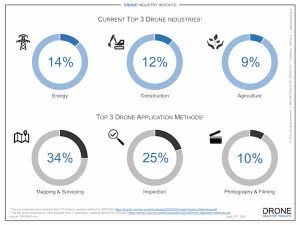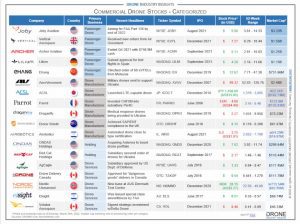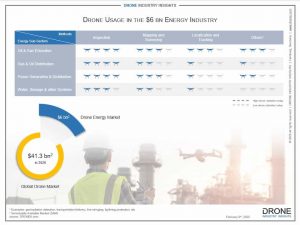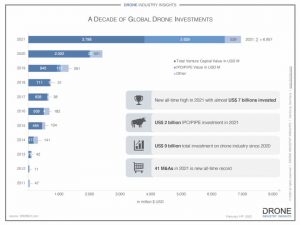Flying Cars, Air-Taxis, Passenger Drones – an industry snapshot
Flying cars, air-taxis, and personal drones are a very hot topic currently. A variety of concept studies and prototypes was presented and they all immediately create the wish to own one of these and being able to fly wherever you want, watching traffic jams from above. These pictures provoke two things: Make people dream and make great marketing for the creator of these images.
How far away is this future of unlimited aerial mobility?
About a dozen flying car companies around the world, including startups and giant aerospace manufacturers, are working on prototypes. Some of them use this vision of mobility for marketing purposes long before a prototype lifts off the ground, others quietly design a fully functioning platform able to take the world by storm. Regulatory issues, as well as issues in acceptance and privacy, are roadblocks on the way to adoption. Lawmakers must react soon as the pressure towards faster and more economic transport grows.
The infographic above shows some of the current flying cars projects, capabilities and individual progress. In general, the next 5 to 10 years are going to an incredible time for the roll-out of this technology.
Who are the current players?
A lot of these concepts are multirotor-based drone-like concepts and spot-on to the current Zeitgeist. Aeromobils “Flying Car” and Terrafugias “Transition” however have folding wings and therefore require a runway to take off and land. This set-up allows covering large distances much more efficient than (multi-)rotor configurations.
German manufacturer e-volo showed automated operation years ago and has certified prototypes allowing passengers to fly to date. In early 2016 EHANG presented the 184 concept at C.E.S. in Las Vegas and a flying (unmanned) prototype in late December. This Autonomous Aerial Vehicle (AAV) requires no pilot and can be controlled via mobile phone app. EHANG is planning the entry-into-service in Dubai this summer.
Being able to vertically take-off and land (VTOL) has massive advantages especially when it comes to urban mobility. Efficient usage of flying cars, however, starts at a flight distance of around 10 miles (~6,3km) favoring a fixed-wing configuration.
Why not both? Using multiple engines to lift up a platform vertically and an additional one to push you forward can be seen in the “separate lift thrust” configurations of Aurora Flight Systems’ “eVTOL” and the yet top-secret Cora.Aero platform.
A vertical to horizontal flight transition can also be done by turning the engines from vertical to a horizontal position (tilt-rotor/tilt-wing configuration). This can be seen at Moller Internationals “Skycar”, Airbus’ “Vahana”, Joby Aviations’ “S2” or the very recently introduced Lilium platform equipped with 32 tilt-rotor engines.
Where is UBER?
UBER elevate is a mobility concept – just like Airbus’ “PopUp” but not the same. UBER will become an “air-taxi” operator, not a manufacturer. On Wednesday, April 26th the “UBER Elevate Summit” explained this future ecosystem and UBERs approach to zero in on questions like: hub location, hub size, hub occupation, load factor (butts in seats), flight time, airspace separation, minimum ground time, charging time, passenger capacity, platform size and many more. The good news is they can do all of this with real user data, collected by their car-hailing service. This will allow starting on strongly frequented routes providing passengers a minimum time-saving of 40% of the usual trip time. The “UBER Elevate Network” will be tested in Dallas and Dubai starting in 2020.











Great article by the Droneii.com team. Very informative, expertly researched and graphically presented. Klasse. Thank you.
Please include Mohyi Labs bladeless propulsion technology for drones and future personnel transportation at http://www.MohyiLabs.Com